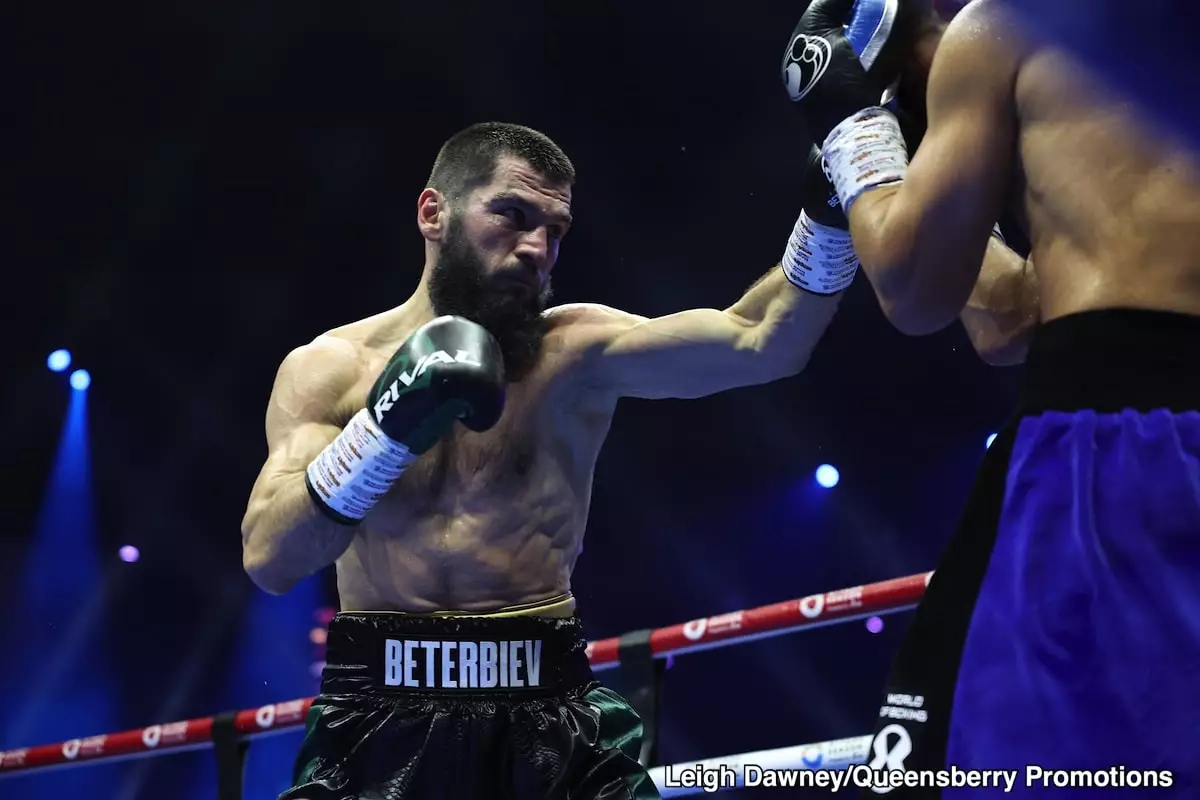Bob Arum, a prominent figure in boxing promotion, has recently expressed his discontent regarding the International Boxing Federation’s (IBF) directive that undisputed light heavyweight champion Artur Beterbiev must defend his title against the little-known Michael Eifert. Beterbiev, holding an impressive record of 21 wins, with 20 of those by knockout, triumphed just days ago over Dmitry Bivol in a highly publicized match. Arum’s vocal frustration centers on the legitimacy of commanding Beterbiev to fight a so-called “non-entity” like Eifert, who possesses a modest record of 13 wins against a single defeat.
Arum firmly believes that such a requirement is ludicrous, particularly following Beterbiev’s high-stakes victory, which many fans viewed as a career-defining moment. He articulates a broader sentiment among boxing aficionados who feel that the governing bodies’ rules often obstruct meaningful matchups. By forcing Beterbiev to engage with Eifert, the IBF appears to undermine the significance of the champion’s recent success, leading to confusion and dissatisfaction among fans and promoters alike.
The Fight Landscape: Options for Beterbiev
Following the match with Bivol, there has been growing speculation regarding Beterbiev’s next opponent. His Excellency Turki Alalshikh has signaled an interest in facilitating a rematch against Bivol due to perceived controversies surrounding last weekend’s decision. However, this proposed matchup may not have the enthusiasm that a clash with boxing superstars Canelo Alvarez or David Benavidez would generate.
Arum’s preference for Beterbiev’s next fight seems geared towards maximizing viewer interest and financial returns, with Canelo being the most appealing option. A bout against Alvarez could draw substantial Pay-Per-View (PPV) buys and capture the eyes of boxing supporters across the United States. Conversely, a rematch with Bivol doesn’t offer the same allure, especially given Bivol’s more defensive style, which did not resonate well with the audience during their previous encounter. Many felt that Bivol’s game plan was overly cautious, leading to a less thrilling spectacle.
The Implications of Mandatory Defenses
Arum’s outspoken criticism of the IBF’s policies raises vital questions about the role and impact of mandatory defenses in professional boxing. While these regulations are intended to establish fairness, they can sometimes hinder champions from seeking out the high-stakes fights that fans demand. This paradox highlights the ongoing struggle between maintaining order within boxing’s governing bodies and the wishes of promoters and fighters alike.
The challenge lies in balancing the integrity of the sport with the financial realities that drive it. If the IBF insists on Beterbiev defending his title against Eifert, they risk alienating fans who crave exciting matchups rather than proceedings focused solely on bureaucracy. As discussions continue amidst the boxing community, one can only hope that governing bodies will eventually evolve their rules to align better with the sport’s dynamic landscape, ensuring that champions like Beterbiev can fully capitalize on their achievements. Ultimately, the world of boxing thrives on compelling narratives and electrifying contests, and it’s crucial that organizations prioritize these elements to maintain public interest and financial viability.


Leave a Reply